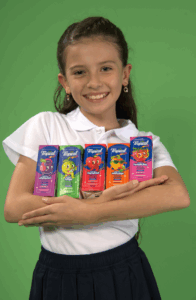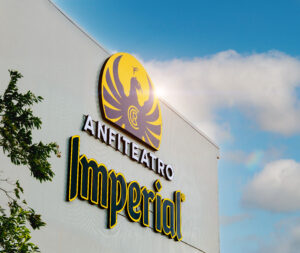- The Plástico Circular (Circular Plastic) initiative aims to develop a circular economy model that allows for sustainable management of non-recyclable plastics from the commercial and business sector in the canton.
- In Costa Rica, 90.5% of plastics are not recyclable due to the composition of their materials, which makes their recycling unfeasible. This initiative aims to involve Belén’s commerce and businesses committed to putting these non-recyclable plastics to a new use.
Belén, with a population of more than 24,000 inhabitants and a total of 1,137 businesses and companies, generated 9,100 tons of solid waste in 2021, according to Belen’s Municipal Plan for Integrated Solid Waste Management 2022-2026.
In response to this situation, a group of companies and organizations formed by CRDC-PEDREGAL, FIFCO, INTEL, NESTLÉ and VEINSA, together with the Directorate of the Belén-Flores Health Area and the UNDP’s Plastic-Free Landscapes Program, launched this morning the Plástico Circular initiative, whose main objective is to implement a circular economy model that allows for sustainable management of non-recoverable plastics.
Ana Yancy Arce, Sustainability and Communication Manager of PEDREGAL, highlighted:
“our companies are united by a common cause: to protect our environment and work together to contribute to the environmental sustainability of the canton related to the management of non-recoverable plastics in the commercial and business sector of Belen. Plástico Circular seeks not only to recover these materials, but also to transform them in a sustainable way through RESIN8TM technology, a synthetic sand used as raw material in the construction industry. We demonstrate that it is possible to give these materials a new purpose and thus reduce their impact on the environment.”
The Plástico Circular project seeks to address the management of non-recoverable plastics. These types of plastics often end up in landfills, or worse, in rivers or seas, generating high pollution.
The implementation of this initiative seeks to make the commercial and industrial sector of Belen a model of excellence in the circularity of plastics and a benchmark in the sustainable management of post-consumer waste. The Plástico Circular initiative complements the current management of recoverable waste collection carried out by the municipality of the canton.
“At FIFCO, sustainability is a transversal axis of our business, for this reason we have been working on actions to reduce the impacts associated with plastic with a 360° circular economy approach, which goes from making lighter bottles, incorporating recycled material, recovering more than 100% of the containers we put in the market and a boost to different plastic packaging in the market to ensure 75% of FIFCO’s entire beverage portfolio is non-plastic packaging. Being part of the Belen Plástico Circular initiative allows us to improve plastic waste management for the benefit of our immediate communities of influence and the environment. We are confident that this model will be successful and we hope it will be replicable in more cantons of the national territory”, said María Pía Robles, FIFCO’s Corporate Relations Director.
To ensure sustainable collection, a route has been implemented that will cover businesses interested in participating, using an electric truck. This measure not only ensures efficient waste management, but also contributes to the reduction of greenhouse gas emissions.
The founding companies of this project, CRDC-PEDREGAL, FIFCO, INTEL, NESTLÉ and VEINSA, plan to successfully recover and transform more than 100 tons of non-recoverable plastics from the canton of Belén this year, and over the next three years, to reach 1,000 tons transformed.
Gustavo Espinoza, Director of the Belén-Flores Health Area, emphasized that “waste management is very important as a collective effort. We are pleased to participate in this pilot project in collaboration with leading Belén companies. By combining resources, these companies demonstrate their commitment to corporate social responsibility and support our local business community by fostering a circular economy approach to non-recoverable plastics.”
Plástico Circular also has an educational component, which seeks to raise awareness among children about the importance of recycling and the proper disposal of waste through the REAP Circular Economy Educational Program and the Bolsa que Construye (Bag that Builds) program. It is also planned to have a distinctive seal for companies and businesses that join the initiative. Companies and businesses interested in learning more about the project and joining can do so through the following link: http://www.pedregal.co.cr/plastico-circular/index.html by calling 2298-4324


